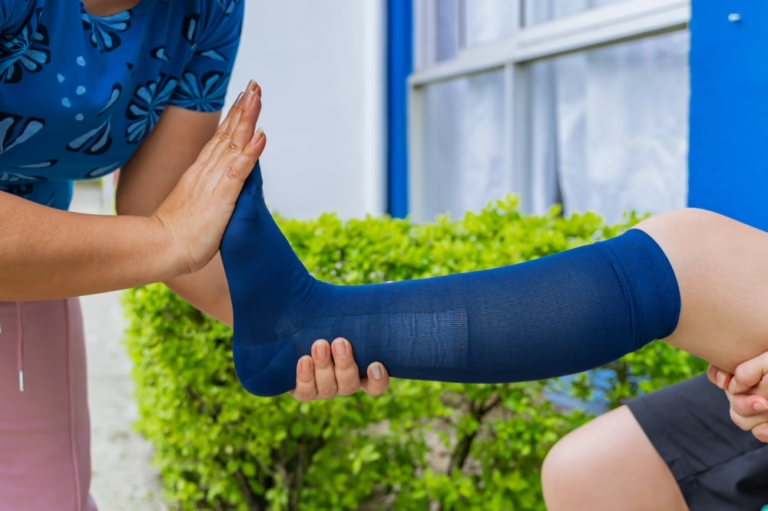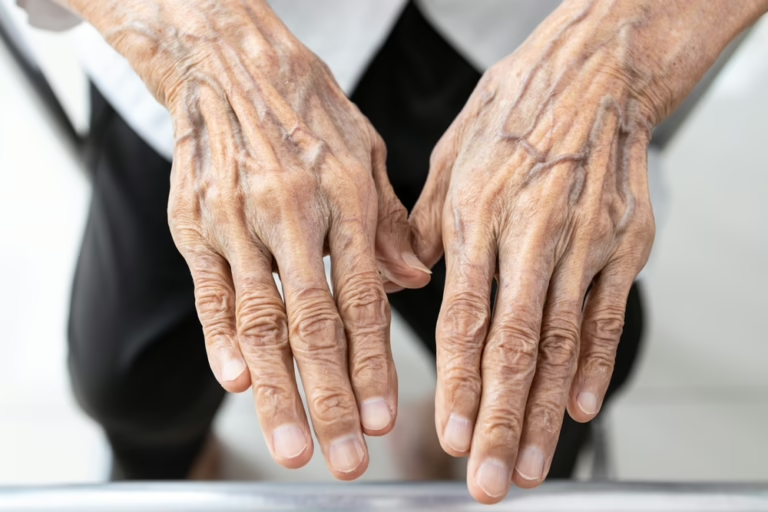
You’ve got those ugly blue ropey things traveling up your leg. You already know they’re varicose veins. Or you’ve got a heavy throbbing feeling in your legs that’s making your life miserable. Maybe your friend or your primary care doctor told you that’s from varicose veins. You’ve had enough of all of this. You’re finally going to do something about it. But, who to see? Nowadays, it seems that every Tom, Dick or Harry says that they treat varicose veins. How do you pick?
Well, a lot of factors should go into your decision. But, the first thing for you to decide is that you’re going to see a board-certified Phlebologist. That’s a mouthful. Let’s break it down.
The Latin root for veins is phleb. Phlebitis (I’m sure you’ve heard of that one) is inflammation of the veins. Phlebotomy (you probably haven’t heard of that one) is the removal of veins. That’s what people used to do to treat varicose veins. It was also called vein stripping, and it went the way of the Spanish Inquisition.
A Phlebologist is a vein doctor – plain and simple. It’s not a general surgeon who has no particular vein training and decided to call himself a Phlebologist. Unfortunately, in our field, the use of the specialist title isn’t well controlled. If you see someone who says that she’s a Cardiologist, you can be pretty certain that she had advanced training in heart disease, both how to diagnose it and how to treat it. But, if you see someone who says that he’s a Phlebologist, you don’t have the same assurance.
One of the problems is that there is no fellowship for Phlebology – the study of vein disease. A fellowship is a training program that a physician takes to obtain specialized training in a field of medicine. Let’s return to the example of the Cardiologist that you went to see. She did a fellowship in Cardiology in a hospital. It took her two to three years of working full-time (and more) under well-established Cardiologists to get the training that gave her the knowledge and skill that she needed to call herself a Cardiologist. And, after all that training, she was allowed to take a special exam given by what’s called a board of Cardiology. If she passed that exam, she earned the title board-certified Cardiologist.
There are very few fellowships in Phlebology. For several years, there’s been talk of setting up such programs nationwide but fellowships are still in their infancy. Instead, there’s a certification exam. Certification is from The American Board of Venous and Lymphatic Medicine (ABVLM).
“The American Board of Venous and Lymphatic Medicine was established in 2007 to improve the standards of medical practitioners and the quality of patient care related to the treatment of venous disorders … Physicians certified in Venous and Lymphatic Medicine have passed the most comprehensive examination of knowledge in venous disease available today.”
One way to qualify for the exam is to take a fellowship specializing in venous disease. But, as I told you, those are few and far between. The more common way to qualify is for the doctor to submit a case list of 200 vein surgeries that he says he performed in the last three years. The applicant also needs special training or extensive experience in ultrasound of the veins. That’s because you can’t treat vein disease without an ultrasound. It’s the road map that answers all the questions about your specific vein disease.
If the Doctor meets the requirements and passes the certification exam, then she is board certified in Venous and Lymphatic Medicine. That’s an unfortunate title. It would be easier if the Doctor wasboard-certified in Phlebology. That’s so much simpler. But it is what it is.
It’s also unfortunate that the Board doesn’t allow the Doctor who passed the exam to use special initials after her name. It would be convenient if the doctor could write their name like this – Dr. Lori Greenwald, MD FABP. In this case, FABP would stand for Fellow of the American Board of Phlebology. That would be easier for the patient. But, again, it is what it is.
So, when you want to get those ugly varicose veins treated, look for someone who’s a Diplomate of the American Board of Venous and Lymphatic Medicine. That’s the designation for someone who qualified to take the board certification exam and who passed it.
To find out if the doctor you’re considering really is board certified, you will have to do a little digging. Read their bio on their website (and if they don’t have a bio on their website, stay away from them). Call their office and speak to the front office staff. Ask them whether he is board certified. Better yet, go the ABVLM website (https://www.abvlm.org/) and click “Find a Physician.” If they’re not board certified, stay away from them.
– Dr. Greenwald



